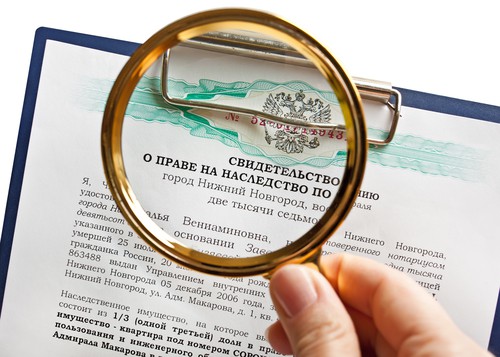The nuances of paying state duty on inheritance
Receiving income in the form of property or valuables inherited from deceased relatives or close people is accompanied by making a mandatory payment -.
We will consider below what size the state duty on inheritance reached in 2019, what nuances of its calculation exist.
The Civil Code allows citizens to transfer their property to relatives, friends, or even the state by right of inheritance. For this purpose, a will can be drawn up in advance, which, in accordance with Article 1124 of the Civil Code of Russia, is certified by a notary.
This rule also applies in 2019. Exceptions when it is possible to write a will without notarization can be made, for example, for persons on long voyages or terminally ill citizens, citizens who received a fatal injury while they were in a hospital.
A will is not valid if it is executed by a trustee or representative of the testator, except in the situations specified above.
The text of the will is secret until it is disclosed after the death of the testator and is not subject to publication or disclosure until this moment. Likewise, the fact of drawing up a will is not subject to disclosure by the notary.
These rules were adopted to avoid possible disputes between future heirs and to avoid influencing the notary and the testator.
The current Civil Code of the Russian Federation establishes that inheritance can be received by persons according to their legal order, which depends on the degree of relationship with the testator. The amount of state duty depends on this degree of relationship:
- 1st degree – children (natural and legally adopted), spouses and parents of the testator;
- 2nd degree – grandparents, brothers and sisters of the deceased;
- 3rd degree – aunts and uncles;
- 4th degree – great-grandparents;
- 5-7 degrees – other relatives.
Common-law spouses, like former spouses after a divorce, will not be each other’s heirs unless other conditions are specified in the will. An exception will be cases in which one of the spouses (civil or former) is dependent on the other for more than one year.

Expenses upon entering into inheritance rights
In the recent past, receiving an inheritance was equated to receiving a profit and was subject to tax in the appropriate amount. However, later these norms were abolished and now the only payment to the state that citizens pay is the state duty when entering into an inheritance.
Additional costs that may be incurred in this case are:
- Fee for issuing a certificate in case of inheritance under a will.
- Payment for notarial actions of a technical nature and assessment of inherited property.
Amounts of state duty on inheritance in 2019

Mandatory state payments are paid both by citizens who received an inheritance under a will and by persons who became heirs by law. The amounts of payments for notary transactions are fixed by federal legislation:
- Examination by a notary of the original signature when signing an application for inheritance - 100 rubles.
- Registration of a certificate of inheritance in cases where the heirs are natural or adopted children, spouses, parents, brothers or sisters of the person who left the inheritance - 0.3% of the value of the inherited property or valuables, but the total amount of payment cannot exceed 100,000 rubles .
- Registration of a certificate of inheritance by relatives of a different degree of kinship is paid by paying a state fee for entering into an inheritance according to the law in the amount of 0.6% of the value of the inherited property or valuables, but cannot exceed the amount of 1 million rubles.
- If inherited funds are deposited with a notary, an inventory of inherited property and valuables is drawn up, jewelry, precious metals or other inherited items are transferred for storage, a state fee of 600 rubles is paid.
- The inheritance duty when issuing a certificate for property that previously belonged to both spouses, and after the death of one of them was inherited by the second spouse, will be 200 rubles.
The state duty on inherited movable and immovable property is calculated from its cadastral or market value. When assessing the value of the inheritance, the notary is obliged to take into account the lesser of these amounts.
More information about payments when entering into an inheritance in the video:
When can the state inheritance tax be reduced?
There are several types of property for which the state duty for inheritance by law or will may not be paid:
- Real estate if, at the time of the death of the testator, he and his heirs lived on its area.
- Pension payments, cash deposits in financial organizations.
- Remuneration to authors for works that are their intellectual property.
- Insurance premiums and payments of the testator.
- Movable and immovable property of citizens who died while performing their civic duty, for example, victims of political repression.
The following categories of citizens may be partially or fully exempt from paying inheritance duty:
- Persons who have not reached their 18th birthday on the day of opening an inheritance case or a will in which they are recognized as heirs.
- Heirs by law or will if it is established that they are mentally ill.
- Citizens with established disability groups 1 and 2 can pay only 50% of the state fee.
- Participants and veterans of the Great Patriotic War.
- Full holders of the Order of Glory, Heroes of the USSR and Russia.
These benefits apply to the payment of state fees for entering into an inheritance according to law and will and do not apply to mandatory payments for performing notarial acts.
